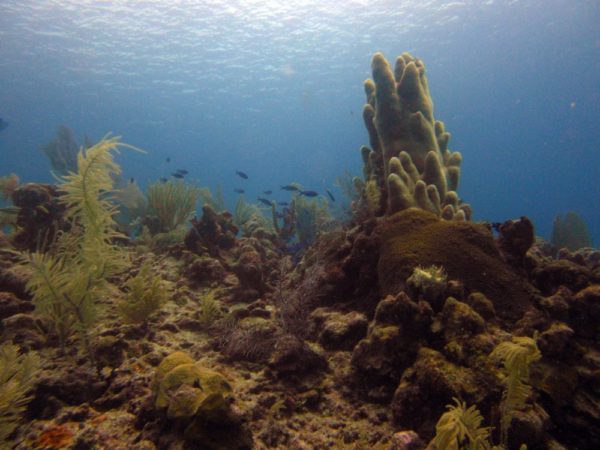Concerned experts warn that coral reefs in Campeche, Yucatán, Quintana Roo, Veracruz and other states are at serious risk in their breeding system, as reported in El Expreso de Campeche with information from Notimex. In a press conference, the officials explained that the rising temperatures, combined with the increase in carbon dioxide (CO2) concentration in the atmosphere, affect the calcium carbonate production of the coral reefs.
Professor Ernesto Weil of the University of Puerto Rico’s Department of Marine Science urged everyone to pay attention to what is happening to the world’s coral reefs, which are, unfortunately, in the process of deterioration. Likewise, he expressed that their reproduction is being threatened by human practices and global warming. “The diagnosis is that the coral reef communities around the world are in a phase of degeneration and have declined significantly if we compare them with the coastal communities in 1950 or 1960”, he stated.
Ernesto Weil, who has dedicated the past 30 years of his life to study the impact of climate change on coral reefs, pointed out that an acid PH was found in the water, which contributes to the dissolution of the already formed calcium carbonate, severely affecting the reef structure construction.
In an interview with the Conacyt Information Agency, he stated that in regions such as the Caribbean, approximately 23 diseases affecting 80 percent of coral species have been studied so far. He emphasized that the aforementioned factors include human intervention and problems like overfishing, pollution, as well as coastal development and sedimentation.
According to the National Commission for the Knowledge and Use of Biodiversity (CONABIO), the estimated area occupied by coral reefs in Mexico is approximately 1,780 square kilometers. These are located in three zones: the Pacific coast, the coasts of Veracruz and Campeche, and the eastern coast of the Yucatan Peninsula.
SOURCE: El Expreso de Campeche



Comments are closed.